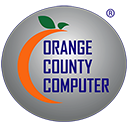3 Killer Tips For Recovering Data From A Windows Laptop In Orange County
If you are the sort of person who likes to switch between a laptop, desktop and tablet, you might have taken a look at Microsoft’s new Surface Pro recently. I tried the Pro and came to the conclusion that it’s a jack of all trades machine and nowhere near good enough for me to consider replacing my laptop with any time soon. As I’m stuck carrying my laptop around with me for the foreseeable future, I’m all too aware of how easy it is to lose data. Laptop hard disk drives (HDDs) are susceptible to knocks, bumps, drops and spillages so data loss can occur at any time, in the blink of an eye. Regular backups are a must, as are automatic online backup solutions, but what if the unthinkable happens and you lose data? This is the issue we’ll be tackling today.
Tip #1: Free Software For Accidental Deletion
The most common reason that people need to recover data is that they accidentally delete files from their laptop. The restore function in the Recycle Bin is your first port of call but there are many reasons why this may not be an option. Many laptop users running Windows are keen to speed up their machines with the use of programs such as CCleaner or Advanced System Care. While effective, running these programs can automatically empty the recycle bin. Recuva is the best free way to successfully restore deleted files.
Tip #2: Check Whether Your HDD Is Damaged
Suspiciously missing files, a grinding or clicking sound, a ‘blue screen of death’ or trouble booting your laptop are all giveaway signs that your HDD may be damaged. A sharp or sudden knock or fall is all it takes to damage an HDD and you can carefully examine this for yourself. If you suspect HDD damage, power down your laptop, remove the battery and turn the closed laptop upside down on a soft, non-scratch surface. Use a Phillips screwdriver to remove the HDD cover and then very carefully remove the hard drive from its protective cage. The only sound you should hear is silence! Anything indicating loose parts or a broken disk may spell catastrophic news for your data.
Tip #3: Consult An Expert Before Attempting DIY Recovery
If the hard drive seems intact and isn’t visibly or audibly damaged, you could use a USB drive enclosure to try to connect it to another PC or laptop. If you are able to access the drive, you could try to recover lost data with Recuva as described above. But wait! You should know that trying to do this could exacerbate any damage caused. It may be time to consult a data recovery expert. If the data is extremely important or valuable to you, your DIY recovery efforts could unwittingly be destroying any hope of retrieving the data.
Bring Out The Big Guns
Professional data recovery has become far more affordable in recent years and many firms operate a ‘no-recovery-no-charge’ policy. Valuable information on a damaged or inaccessible HDD is best recovered by an IT expert. You should stop using your drive as soon as you realize it is damaged or that you have lost data. Expect to pay at least a $85 diagnostic fee if your data is recoverable. Many firms outsource data recovery if your HDD is broken and this can cost anywhere up to $150 per hour.
